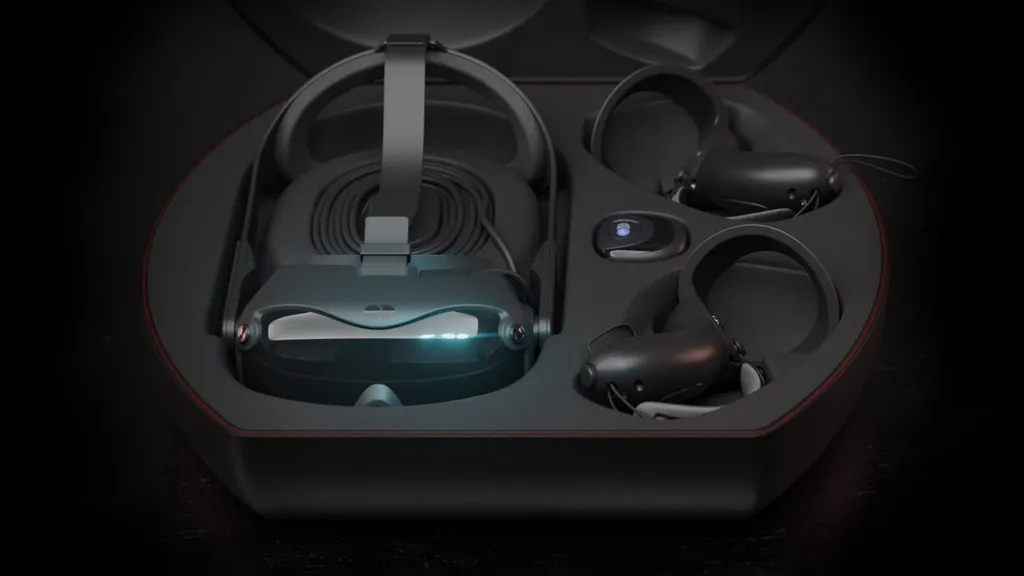VR hardware startup Megadodo Games announced a strategic “pivot”, warning of inflated component costs and long preorder shipping delay for DecaGear.
Update November 14: Kuntzman confirmed existing preorders will be fulfilled at the $450 price.
DecaGear was first announced in October 2020 as a $450 PC VR headset with HP Reverb resolution, facial expression tracking, hip tracking, and Touch-like controllers with Index-like finger tracking. Preorders opened shortly after. The first batch was supposed to ship in May, but this was delayed to Q4. Megadodo now says it has “pre-orders from 10 thousands members” and they now target the end of 2022 for a “Limited edition of DecaGear”.
In an announcement titled ‘Shortage, Meta, Financials, It’s Time to Pivot’, co-founder and CEO Or Kuntzman warned the global semiconductor shortage makes that $450 pricepoint no longer viable.
“Semiconductors crave for big orders while investors see too many risks for substantial investment. Even if we solve the financial issues and produce the headset as is, its current price is ~$700, more than double the cost of the Quest 2.“
While Kuntzman claims the $450 price will be honored for current preorders, it sounds like it won’t be feasible for a wider scale release.
Kuntzman says he doesn’t want to sell expensive hardware, and so Megadodo will “pivot and change to a direction that will allow us to build a future in VR towards an open ecosystem”. After shipping a “limited edition” of DecaGear to preorders, the product will be sold and shipped by “other device makers”. In 2023, he wants Megadodo to release a ‘DecaBrick OS’ which other device makers can use, presumably a standalone VR operating system.
Specific details of this new strategy should be revealed next week, Kuntzman says. We’ll be interested to hear how partnering with other manufacturers could bring down that $700 estimate.
The announcement will come as a disappointment to PC VR users hoping for more competition in the hardware market. Meta’s headsets now make up over 60% of SteamVR use, with Quest 2 alone accounting for 35%. No other new PC headsets are on the horizon, but reports indicate Valve is working on a standalone with PC streaming capability and Lynx will support PC streaming too.





























